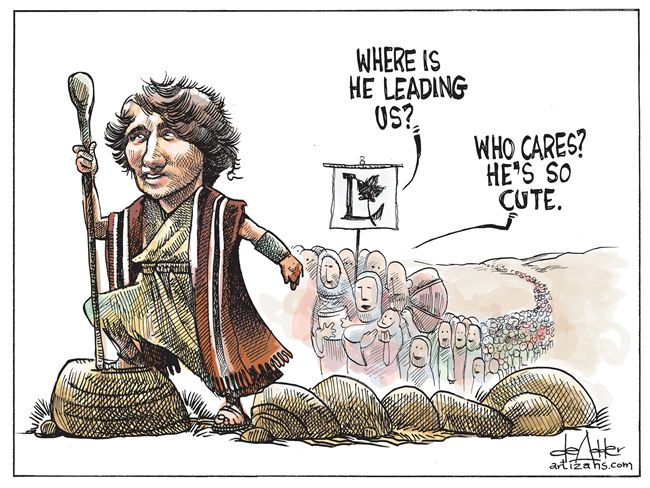The five-week long strike in Ontario’s community colleges, which ended


The five-week long strike in Ontario’s community colleges, which ended

The editors of New Socialists asked three activists Hassan Husseini, Niloofar Golkar, and Russell Diabo to explain what the election of a Liberal majority means for their areas of social justice work. We’re afraid to hear that they are deeply sceptical that…

Canada Post Corporation management is moving forward with its project of eliminating door-to-door postal service across Canada and Quebec. If it’s completed, it will deprive millions of people of a valued service and thousands of postal workers of their jobs. While this move is very unpopular, in most places not a lot has been done to turn widespread pro-door-to-door sentiment into active opposition. London, Ontario is one city where efforts to build an active campaign around defence of door-to-door have been more successful. We are republishing this article on the campaign in London to give readers a sense of some of the community mobilization tactics being used there. Such campaigns are important not only because they have more potential when it comes to defending public services but also because they can show in practice that there’s an alternative to just waiting for the next election. To quote from an article we published earlier this year, “It is through engaging with social movements that people develop new political skills and confidence and are exposed to new political perspectives about how other struggles and how society works.” With the federal election coming up later this year, it’s important to bear that in mind.
– NSW

By Umair Muhammad
The simultaneous strikes at the University of Toronto and York University have come to an end. Teaching and Graduate Assistants at both universities (joined in the beginning by Contract Faculty at York) walked picket lines through much of the month of March after contract negotiations with their respective employers broke down.
Following repeated avowals that it could not possibly provide what was being asked of it, York ended up agreeing to meet all of the major demands made by its striking workers. In the case of the strike at UofT, the outcome was not as decisive.
By Mostafa Henaway
The recent article by David Camfield and Salmaan Khan highlights the increasing urgency to rethink the state of the labour movement. Six years after the financial crisis, organized labour is still on the defensive. Yet as the authors point out “the weakness or absence of workers’ organization reveals a movement in need of reinvention.” But we also need to think about how we rebuild a militant labour movement at the point of organizing, among the rank-and-file, and not simply look at theory and strategies. Activists and organizers need to think about reinventing the labour movement almost one worker at a time.
By Lisa Descary
It is hard to imagine that anybody who strongly supports public education in British Columbia was thrilled when the BC Liberals pulled off an unwelcome, last-minute election victory in 2013. Given the Liberals’ history of failure to address the basic needs of the public school system, it was plain to see that more trouble was on the horizon. But this time teachers would not just face the ongoing ebb and flow of government cut-backs and attempts at privatization that our union has to push back against, but a perfect storm that would test us like never before.
Review of New Forms of Worker Organization: The Syndicalist and Autonomist Restoration of Class-Struggle Unionism, edited by Immanuel Ness, Oakland (PM Press, 2014)
By Steve Early
By David Camfield and Salmaan Khan
The workers’ movement in Canada and Quebec is in a state of disarray, unable to deal with ongoing attacks on the diverse working class. Whether unionized, non-unionized, temporary, racialized, women or indigenous workers, the weakness or absence of workers’ organization reveals a movement in need of reinvention. What follows is an introductory piece meant to open discussion on the state of the workers’ movement today. We plan to publish responses and other articles that add to the discussion. We invite readers to respond directly to this opening article with reference to some of the key questions and concerns it raises (or others that you think it ignores). Responses do not have to be long (between 1000 and 2000 words) and can be sent to website[at]newsocialist.org Shorter comments posted below the article on the site are also welcome, as always.
By Lisa Descary
It’s July in Greater Vancouver. Birds are singing, the sun is shining, and BC public school teachers like me are signing up for picket line shifts. Yes, that’s right: I am walking the picket line in July, a time when my school is not even in session. And I don’t even teach summer school. How did this happen?
By David Bush
In the dead of night on March 31 the Liberal government of Nova Scotia skulked into the provincial legislature and introduced essential service legislation, Bill 37, that stripped nearly 40 000 workers of their right to strike.
By Cindy McCallum Miller
This year’s Canadian Labour Congress (CLC) convention might be worth attending after all. With a presidential challenge in the air, labour leaders will have to trade in their silk shirts for a pair of overalls to show they still are connected to the working class in order to seek the support of delegates. But it will take more than a fashion change to rebuild the dormant and disillusioned labour movement. That is what activists hope challenger Hassan Husseini will bring to the House of Labour.
By Lindsay Hinshelwood
Over the Labour Day weekend two of Canada’s largest industrial unions, the Canadian Auto Workers (CAW) and the Communications, Energy and Paperworkers (CEP), merged to become the country’s largest private sector union, Unifor.
Review of Lois Weiner, The Future of Our Schools: Teachers Unions and Social Justice (Haymarket, 2012)
By Lisa Descary
By Gene McGuckin
This is the slightly edited text of a presentation to CEP BC Provincial Council in Vancouver on April 27, 2013.

By Murray Cooke
On January 3, Ontario Education Minister Laurel Broten announced that she will be imposing concessionary contracts on the province’s teachers. This is a drastic attack on collective bargaining rights that the teachers have said they will fight. It follows on the heals of the Liberal minority government’s Bill 115, “An Act to Implement Restraint Measures in the Education System,” passed last September with the support of the Conservatives.
By David McNally
This article will be the afterword to the forthcoming Danish translation of the author’s book Global Slump: The Economics and Politics of Crisis and Resistance — NSW.
By Bruce Allen
The approaching merger between the Canadian Autoworkers (CAW) and the Communications, Energy and Paperworkers (CEP) will create the largest private sector union in Canada with over 300 000 members employed in 22 sectors of the economy. As such it has the potential to profoundly affect the political direction of both the labour movement in this country and ultimately the political future of Canada.